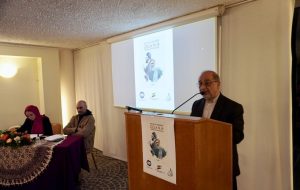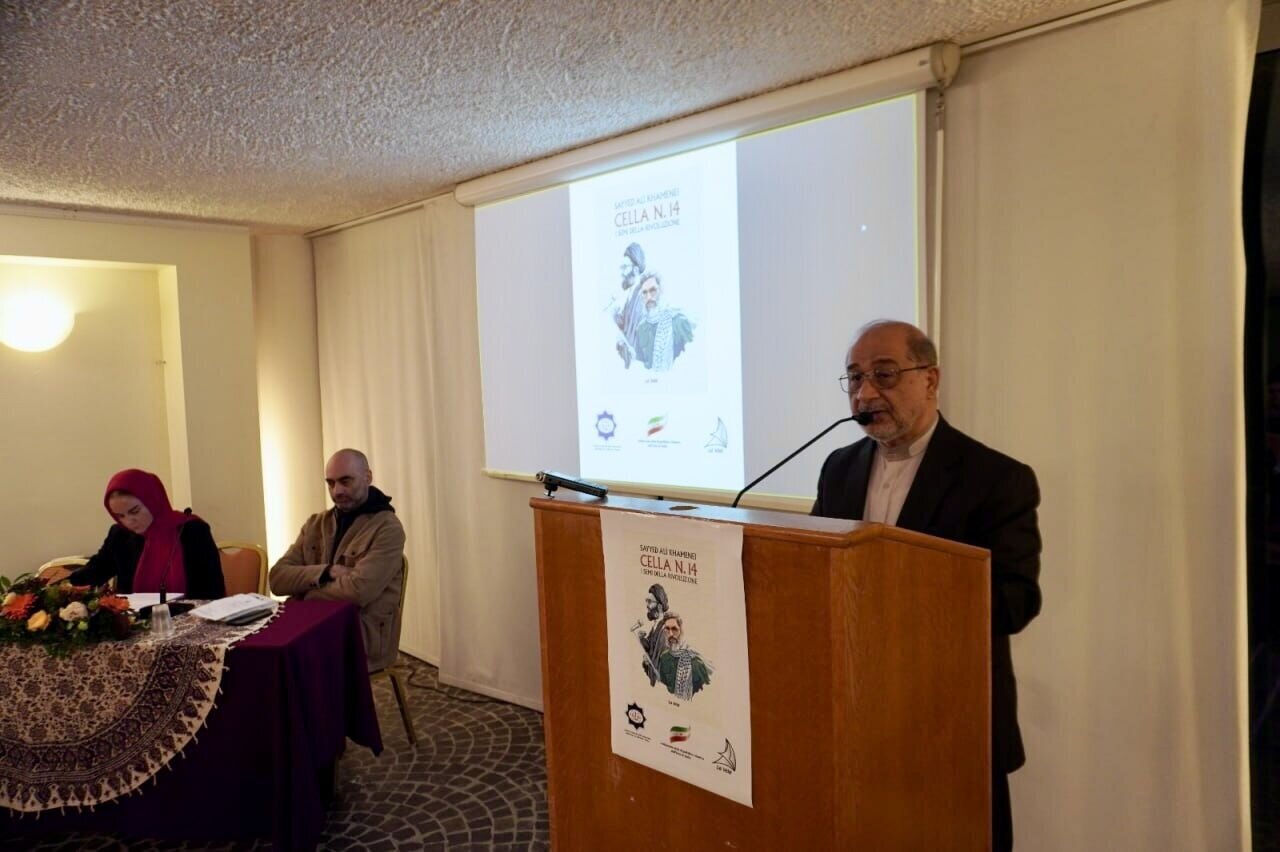Italian translation of Ayatollah Khamenei’s “Cell No. 14” unveiled in Rome
TEHRAN-The Italian translation of the book “Cell No. 14” which recounts the memoirs of the Leader of the Islamic Republic of Iran Ayatollah Seyyed Ali Khamenei during his imprisonment and exile before the 1979 Islamic Revolution, was unveiled on Friday in Rome, Italy. The unveiling ceremony was organized by the Cultural Attaché Office of the


TEHRAN-The Italian translation of the book “Cell No. 14” which recounts the memoirs of the Leader of the Islamic Republic of Iran Ayatollah Seyyed Ali Khamenei during his imprisonment and exile before the 1979 Islamic Revolution, was unveiled on Friday in Rome, Italy.
The unveiling ceremony was organized by the Cultural Attaché Office of the Embassy of the Islamic Republic of Iran in Rome and was attended by several Italian scholars, cultural figures, and media representatives, IRNA reported.
Speaking at the event, the Iranian ambassador to Italy Mohammad Reza Sabouri described the book as a valuable work by Ayatollah Khamenei. “It is more than a collection of memoirs as it offers profound lessons in faith, perseverance, and the pursuit of lofty ideals,” he emphasized.
“In today’s world, marked by numerous challenges and crises, such works are more valuable and inspiring than ever,” he noted.
Sabouri further stated that “Cell No. 14” is not merely a personal account of a struggle but a testament to universal human and Islamic values that serve as a guide across all times and places.
Elaborating on the book’s relevance and universal appeal, he noted that it sheds light on global issues such as injustice, violence, sanctions, and discrimination. “The book is a beacon of resistance against oppression for all free people worldwide.”
The ambassador also remarked on the book’s significance in the context of ongoing global injustices, especially those faced by the oppressed peoples of Palestine and Lebanon. He criticized the actions of the Israeli regime and the broader implications of its occupation and aggression, portraying “Cell No. 14” as a source of inspiration for resistance and resilience against such injustices.
Another speaker at the event was Fulvio Grimaldi, an Italian writer, documentarian, and journalist, who praised the Iranian resistance and its role in inspiring hope and faith in the face of evil and oppression. Grimaldi likened the figures of modern resistance to iconic leaders such as Nelson Mandela, Patrice Lumumba, Che Guevara, and Hugo Chávez, emphasizing their shared values of courage and defiance.
Also speaking at the event, David Nieri, head of La Vela Publishing House and the book’s translator, described his experience translating the book as transformative. He noted the spiritual depth and moral lessons embedded in the narrative, highlighting its emphasis on prayer, devotion, and faith.
The ceremony concluded with discussions about the book’s themes, as well as broader topics such as developments in the West Asia and Iran’s membership in BRICS, to which the Iranian ambassador responded.
“Cell No. 14” covers the first half of the life of Ayatollah Khamenei, from his early childhood all the way to the 1979 Islamic Revolution that brought the monarchical regime to an end in Iran.
In his book, the author skillfully transports readers to a tangible and realized space through simple yet comprehensive literature. The book’s narrative is devoid of imposing or imaginative elements, resulting in a striking sense of concreteness and realization.
It is a remarkable saga of a young cleric blessed with an indomitable spirit who fights a dictatorial regime with his sermons and speeches as well as with his organizational abilities. He never loses hope despite being sent to prison and exile and finally emerges victorious against all odds.
The book serves as a source of inspiration to all activists around the globe who are trying to bring about social and political change.
It also contains unpublished photos of the Leader, his father, and his children, in addition to a photo collection of paintings related to the topics in the book.
The Persian edition of the book was published in 2019. It was a Persian translation of “Inna Ma as-Sabri Nasra” the Leader had written in Arabic. The memories were then compiled by the Iranian Arabic language scholar Mohammad-Ali Azarshab.
Since then, the Spanish, Portuguese, Urdu, Bengali, and Chinese translations of the book have also been published.
Photo: Iranian ambassador to Italy Mohammad Reza Sabouri speaks at the unveiling ceremony of the book in Rome on November 15.
SS/SAB
